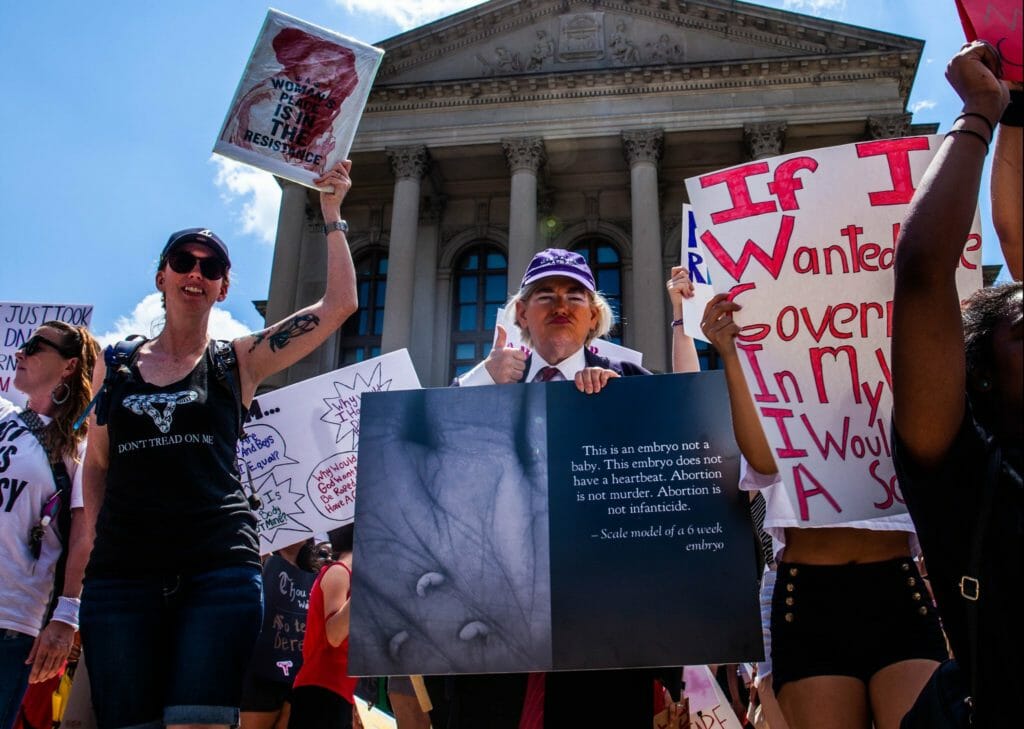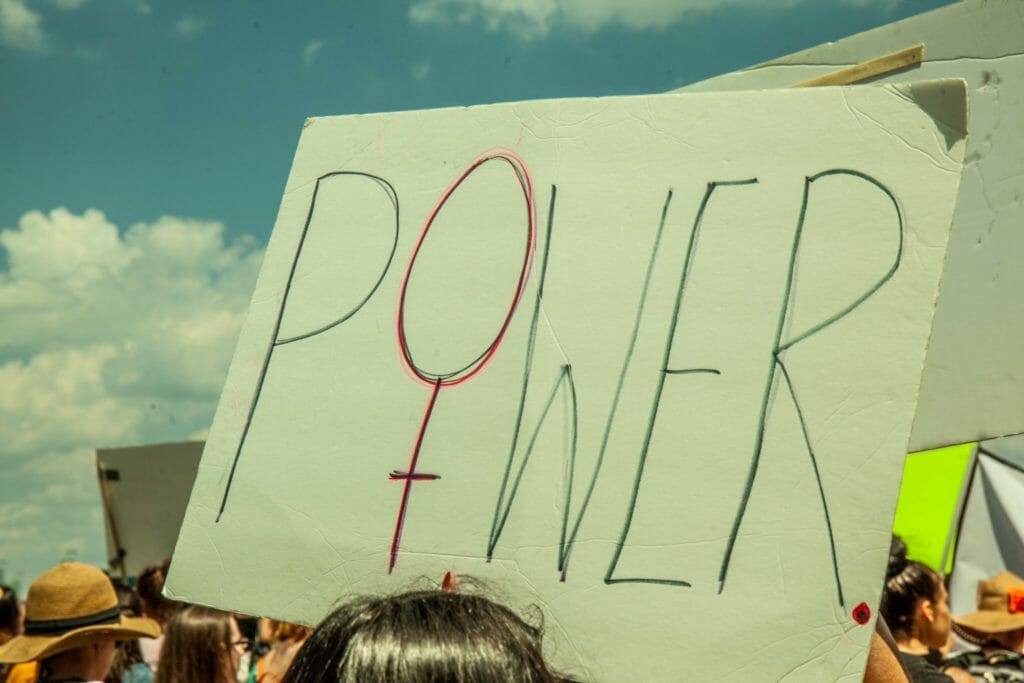
ATLANTA — As the nation moves closer to Election Day, now just 27 days away, voters are configuring their voting plans, learning how to volunteer as poll workers and poll watchers, and dotting their i\’s and crossing their t\’s on their absentee ballots. Georgia in particular is facing a rather pivotal election year, with multiple Senate and local races whose results could help pave the way for monumental changes on multiple levels, including health care and education. (Be sure to follow the Mainline Podcast on your preferred streaming platform to keep up with poll updates and other local election news.)
There is a series of questions on the ballot this year that could prompt additional confusion and anxiety for voters on top of everything else. We\’re here to break it down.
DeKalb County voters: the Ethics Question in regards to HB 1123
In 2018, the Supreme Court of Georgia ruled that DeKalb County\’s board appointment process was unconstitutional because non-government organizations selected a number of the board members. Since then, the DeKalb County Board of Ethics has simply stopped meeting.
Back in 2015, voters essentially overhauled the board after its years of corruption scandals and overwhelmingly approved changes to make the board more independent. One means of doing this was to allow outside groups to appoint a majority of Ethics Board members. It was this restructuring that the Supreme Court of Georgia ruled unconstitutional. The decision shut down the board until a new process for appointing new members.
DeKalb County delegation has spent the last few sessions working a bill which has been introduced and received near unanimous support in the legislature. House Bill 1123, if passed, will reconstitute the DeKalb County Board of Ethics and board members will begin on Jan. 1, 2021. The bill also maintains a full-time ethics officer, who is also a member of the Georgia Bar Association, adds a full-time ethics administration position to receive complaints, maintain records of the ethics board, and notify the subjects and ethics board of complaints received.
Bottom line: Shall the Act be approved which revises the Board of Ethics of DeKalb County? We\’re voting yes.
For City of Atlanta voters: City of Atlanta Homestead Exemption
The City of Atlanta Homestead Exemption was passed through HB 1167, which is co-sponsored by House Rep. Bee Nguyen of District 89.
Currently, Atlanta homeowners receive a basic $30,000 homestead exemption on their main resident on property taxes. This exemption does not apply to any Atlantans who are buying housing on land that is owned by nonprofit land trusts — which is something we should seek more of in the name of conservation and sustainability as we near the inevitable crisis of climate change. This exemption slated in this new bill would extend the homestead to any individuals who buy a house that sits on top of land owned by a nonprofit land trust.
In case you were wondering, land trusts are charitable organizations that acquire land to achieve one or more conservation purposes. Land trusts work cooperatively with landowners to complete real estate transactions, sometimes purchasing property interests and sometimes accepting donations of those interests. They also work to ensure that land previously acquired or placed under easement is properly conserved. They seek to bring lasting conservation benefits — permanent improvements — to communities.
As we enter a new era in a haze of uncertainty and lack of much needed systemic infrastructure to properly combat climate change, there should be as much incentive and as little barriers possible to means of sustainable living. This exemption would extend property tax relief to those who purchase land through a land trust in addition to those who own private property.
Bottom line:“Shall the Act be approved which provides a new homestead exemption from the City of Atlanta ad valorem taxes for municipal purposes in the amount of $30,000 for each resident of the City of Atlanta who holds real property subject to a written lease having an initial term of not less than 99 years with a landlord that is an entity exempt from taxation under Section 501(c)(3) of the federal Internal Revenue Code and who owns all improvements located on the real property?” We\’re voting yes.
Statewide constitutional amendments
There are three statewide constitutional amendments all Georgia voters will see on their ballots this year.
1. House Resolution 164: Authorizes dedication of fees and taxes to their intended purposes by general state law.
The amendment adds teeth and transparency to providing a way to ensure that fees that are specifically designated actually get allocated for their designated purposes rather than enable those fees to go to general slush fund to be used for other purposes. We\’re voting yes.
2. House Resolution 1023: Shall the Constitution of Georgia be amended to waive sovereign immunity and allow the people of Georgia to petition the superior court for relief from government acts done outside the scope of lawful authority or which violate the laws of this state, the Constitution of Georgia, or the Constitution of the United States?
This is a big yes. This amendment gives Georgians the ability to seek judicial recourse when the government is breaking the law. Yes, yes, yes. YES.
Let\’s look at an example in the context of COVID-19. If an individual believes executive orders related to the coronavirus pandemic are unconstitutional, the state and municipalities are currently shielded from legal action because of sovereign immunity. Sovereign immunity simply refers to the fact that the government cannot be sued without its consent. This amendment would allow Georgians to bring litigation against the state, any county, consolidated government, or municipality in Georgia in violation of the laws of the Georgia Constitution or the Constitution of the United States. This iteration, however, does not authorize financial awards for attorney\’s fees or costs of litigation.
Waiving sovereign immunity in Georgia under Gov. Brian Kemp\’s governorship is something we should absolutely leap towards. It is still unclear the extent of the damages caused by Kemp\’s decisions while in office during the pandemic, and whether or not those actions are unconstitutional is beyond the scope of this article, but the people deserve the right to bring forth litigation against the state. Whether or not this goes through could be a game changer in communities\’ recovery from the ongoing traumas of the COVID-19 pandemic.
3. House Bill 344: Shall the Act be approved which provides an exemption from ad valorem taxes for all real property owned by purely public charity, if such charity is exempt from taxation under 501(c)(3) of the federal Internal Revenue Code and such real property is held exclusively for the purpose of building or repairing single-family homes to be financed by such charity to individuals using loans that shall not bear interest?
This bill amends O.C.G.A. 48-5-41, relating to property exempt from ad valorem taxation — a tax based on the assessed value of an item, such as real estate or personal property — by adding an exemption for all real property owned by a charity if the property is held exclusively for the purpose of building or repairing single-family homes to be financed by the charity to individuals using interest free loans. This bill will give charitable organizations like Habitat for Humanity the ability to devote more resources to building affordable housing.
Amendments like this only begin to scratch the surface of policy changes desperately needed in Georgia as the state continues to wade through a statewide affordable housing crisis. We\’re voting yes.
Early voting begins in Georgia on Mon., Oct. 12. Find a list of early voting locations for your county here, as well as more information on everything to know about voting in Georgia during the pandemic here.




